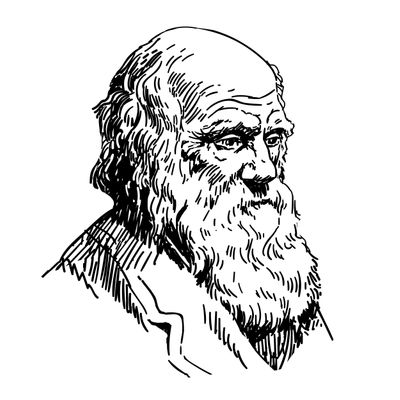3.1.2
Chapters 3-4
Chapters 3-4: Summary and Analysis
Chapters 3-4: Summary and Analysis
Here's a summary and an analysis of Chapters 3-4:


Plot summary
Plot summary
- Jonathan’s horror at being Dracula’s prisoner increases as he witnesses the Count crawling, lizard-like, down the Castle wall to access the lower levels before he has an intense encounter with three female-vampires.
- Dracula prepares to leave for England and Jonathan, entering the castle crypt by copying the Count’s lizard-crawl, is appalled to find him lying in a box of earth.


Lizard simile
Lizard simile
- Dracula’s monstrous nature continues to be gradually revealed as Jonathan witnesses him climbing down the castle walls, “mov[ing] downwards with considerable speed, just as a lizard moves along a wall.”
- The simile again highlights the Count’s zoomorphic attributes and how he is able to transcend the boundaries between humans and animals.


Darwin's influence
Darwin's influence
- In 1859, Charles Darwin's On the Origin of the Species controversially suggested there was a greater link between human beings and animals and, whilst Dracula is never compared to a primate, his reptilian movements here reflect his cold-blooded and callous characteristics.


The female vampires
The female vampires
- The reader is then introduced to three additional vampires, initially taking the form of beautiful women.
- Jonathan is clearly attracted to them, despite his commitment to Mina: "I felt in my heart a wicked, burning desire that they would kiss me with those red lips.”
- The use of the adjective “wicked” overtly states that Jonathan knows his thoughts are sinful, yet he is in the thrall of these women.


Predatory natures
Predatory natures
- The vampires, like Count Dracula, are shown to be predatory in nature.
- There is obvious subversion of innocent imagery in one of them having “fair hair” yet this is juxtaposed against her powerful advance towards Jonathan.
Chapters 3-4: Analysis (Cont.)
Chapters 3-4: Analysis (Cont.)
Here's an analysis of Chapters 3-4:


Sexualisation of the vampires
Sexualisation of the vampires
- The behaviour of the three female-vampires is highly sexualised - acting as a representation of ‘fallen women’ (a euphemism often used to describe prostitutes).
- The scene would likely shock a Victorian readership with its allusions to sexual activity.
- When Jonathan closes his “eyes in a languorous ecstasy and waited – waited with beating heart” he appears to be on the verge of an orgasm.


Dracula's interruption
Dracula's interruption
- However, the vampires are interrupted by Dracula who, revealing his terrible strength as he “hurls” one of the females away from Jonathan. The effeminate portrayal of Harker continues as, overcome with terror, he loses all consciousness.


Doppelganger introduced
Doppelganger introduced
- In Chapter 4, the Gothic motif of the Doppelganger (double) is introduced.
- Having witnessed the Count wearing his own suit, Jonathan mimics his lizard-like movements down the castle wall and discovers the crypt.
- The climb down is symbolic of a descent into Hell and foreshadows the discovery of Dracula lying in a box of Earth in his un-dead state, full of fresh blood, having gouged like a leech.


Jonathan's concerns
Jonathan's concerns
- Jonathan’s concern that once in London, Dracula may “create a new and ever-widening circle of semi-demons to batten on the helpless” evokes Victor Frankenstein’s concern over his creature’s request for a female companion whilst also reflecting Xenophobic attitudes towards outsiders and foreigners that were common amongst Victorian society.


Contemplating death
Contemplating death
- The first part of the novel ends with Jonathan contemplating his death and escape from the monstrous female vampires: “At least God’s mercy is better than that of these monsters, and the precipice is steep and high. At its foot a man may sleep – as a man. Goodbye, all! Mina!”
1Context - Gothic Literature
1.1Origins & Conventions of Gothic Literature
1.2Vampires in Gothic Literature
1.3'Terror' & 'Horror'
1.4Narrative Features
2Context - The Victorian Era
2.1The Victorian Era
3Chapter Summaries & Analyses
4Character Profiles
4.1Archetypal Gothic Characters
4.2Count Dracula
4.3Other Main Characters
4.4Minor Characters
5Key Ideas
6Writing Techniques
7Critical Debates & Interpretations
7.1Initial Reception of Dracula
7.2Modern Reception of Dracula
Jump to other topics
1Context - Gothic Literature
1.1Origins & Conventions of Gothic Literature
1.2Vampires in Gothic Literature
1.3'Terror' & 'Horror'
1.4Narrative Features
2Context - The Victorian Era
2.1The Victorian Era
3Chapter Summaries & Analyses
4Character Profiles
4.1Archetypal Gothic Characters
4.2Count Dracula
4.3Other Main Characters
4.4Minor Characters
5Key Ideas
6Writing Techniques
7Critical Debates & Interpretations
7.1Initial Reception of Dracula
7.2Modern Reception of Dracula
Unlock your full potential with Seneca Premium
Unlimited access to 10,000+ open-ended exam questions
Mini-mock exams based on your study history
Unlock 800+ premium courses & e-books